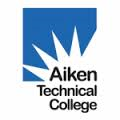What do they do?
Assist nuclear physicists, nuclear engineers, or other scientists in laboratory, power generation, or electricity production activities. May operate, maintain, or provide quality control for nuclear testing and research equipment. May monitor radiation.
Also known as:
Auxiliary Operator, Equipment Operator, Licensed Nuclear Operator, Non-Licensed Nuclear Equipment Operator (NLO), Non-Licensed Nuclear Plant Operator (NLO), Nuclear Auxiliary Operator, Nuclear Equipment Operator (NEO), Nuclear Plant Equipment Operator (NAPEO), Operations Technician, Systems Operator
-
-4.2%
Change
Ranks #22 in job growth rate20Job Openings
Ranks #14 in net job growth
Looking for colleges that offer a specific major? Use the College Match Tool to find your best-matched schools and discover your estimated Net Price!
- Bachelor's degree (34%)
- Some college, no degree (21%)
- High school diploma equivalent (19%)
- Associate's degree (13%)
- Master's degree (9%)
- Doctorate or Professional Degree (2%)
- Less than high school diploma (2%)
People in this career often have these skills:
- Active Listening - Giving full attention to what other people are saying, taking time to understand the points being made, asking questions as appropriate, and not interrupting at inappropriate times.
- Monitoring - Monitoring/Assessing performance of yourself, other individuals, or organizations to make improvements or take corrective action.
- Operations Monitoring - Watching gauges, dials, or other indicators to make sure a machine is working properly.
- Critical Thinking - Using logic and reasoning to identify the strengths and weaknesses of alternative solutions, conclusions, or approaches to problems.
- Speaking - Talking to others to convey information effectively.
- Reading Comprehension - Understanding written sentences and paragraphs in work-related documents.
- Operation and Control - Controlling operations of equipment or systems.
People in this career often know a lot about:
- Public Safety and Security - Knowledge of relevant equipment, policies, procedures, and strategies to promote effective local, state, or national security operations for the protection of people, data, property, and institutions.
- Mechanical - Knowledge of machines and tools, including their designs, uses, repair, and maintenance.
- Physics - Knowledge and prediction of physical principles, laws, their interrelationships, and applications to understanding fluid, material, and atmospheric dynamics, and mechanical, electrical, atomic and sub-atomic structures and processes.
- Engineering and Technology - Knowledge of the practical application of engineering science and technology. This includes applying principles, techniques, procedures, and equipment to the design and production of various goods and services.
- Education and Training - Knowledge of principles and methods for curriculum and training design, teaching and instruction for individuals and groups, and the measurement of training effects.
- Chemistry - Knowledge of the chemical composition, structure, and properties of substances and of the chemical processes and transformations that they undergo. This includes uses of chemicals and their interactions, danger signs, production techniques, and disposal methods.
- English Language - Knowledge of the structure and content of the English language including the meaning and spelling of words, rules of composition, and grammar.
- Computers and Electronics - Knowledge of circuit boards, processors, chips, electronic equipment, and computer hardware and software, including applications and programming.
- Mathematics - Knowledge of arithmetic, algebra, geometry, calculus, statistics, and their applications.
People in this career often have talent in:
- Deductive Reasoning - The ability to apply general rules to specific problems to produce answers that make sense.
- Inductive Reasoning - The ability to combine pieces of information to form general rules or conclusions (includes finding a relationship among seemingly unrelated events).
- Information Ordering - The ability to arrange things or actions in a certain order or pattern according to a specific rule or set of rules (e.g., patterns of numbers, letters, words, pictures, mathematical operations).
- Perceptual Speed - The ability to quickly and accurately compare similarities and differences among sets of letters, numbers, objects, pictures, or patterns. The things to be compared may be presented at the same time or one after the other. This ability also includes comparing a presented object with a remembered object.
- Near Vision - The ability to see details at close range (within a few feet of the observer).
- Problem Sensitivity - The ability to tell when something is wrong or is likely to go wrong. It does not involve solving the problem, only recognizing that there is a problem.
- Flexibility of Closure - The ability to identify or detect a known pattern (a figure, object, word, or sound) that is hidden in other distracting material.
- Selective Attention - The ability to concentrate on a task over a period of time without being distracted.
- Written Comprehension - The ability to read and understand information and ideas presented in writing.
- Oral Expression - The ability to communicate information and ideas in speaking so others will understand.
- Far Vision - The ability to see details at a distance.
- Oral Comprehension - The ability to listen to and understand information and ideas presented through spoken words and sentences.
- Auditory Attention - The ability to focus on a single source of sound in the presence of other distracting sounds.
- Speech Recognition - The ability to identify and understand the speech of another person.
- Speech Clarity - The ability to speak clearly so others can understand you.
- Hearing Sensitivity - The ability to detect or tell the differences between sounds that vary in pitch and loudness.
People in this career often do these activities:
- Monitor operations to ensure compliance with safety or security policies or regulations.
- Inspect work sites to identify potential environmental or safety hazards.
- Monitor operational procedures in technical environments to ensure conformance to standards.
- Test mechanical systems to ensure proper functioning.
- Maintain work equipment or machinery.
- Maintain laboratory or technical equipment.
- Inspect equipment to ensure proper functioning.
- Calibrate scientific or technical equipment.
- Communicate safety or hazard information to others.
- Measure radiation levels.
- Communicate with other workers to coordinate activities.
- Identify sustainable business practices.
- Clean objects.
- Prepare operational reports.
- Collect environmental data or samples.
This page includes data from:

 Occupation statistics: USDOL U.S. Bureau of Labor Statistics Occupational Employment Statistics
Occupation statistics: USDOL U.S. Bureau of Labor Statistics Occupational Employment Statistics













